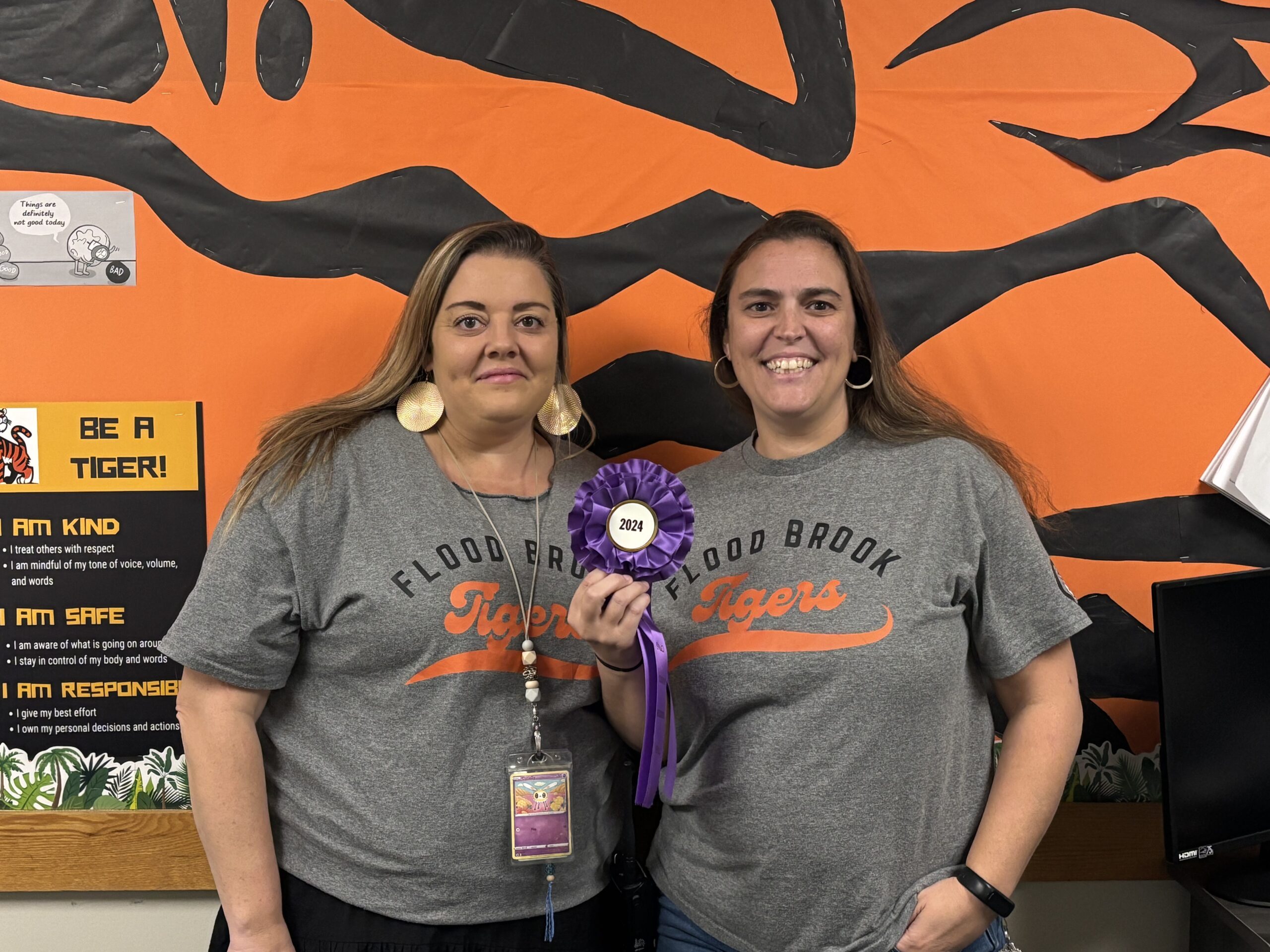
LONDONDERRY, Vt. – A Flood Brook student banged his fist on the desk and gouged a book with a pencil. He was frustrated with a math assignment and struggling to effectively manage his emotions, and becoming dysregulated. No one called him out or in any way escalated the situation. That’s because a system was already in place to respond to the circumstances and keep the students in the classroom learning, not shame or punish the dysregulated student.
“The idea is to recognize the dysregulation before it overwhelms the student,” explains Flood Brook behaviorist Johanna Davis. “Providing the student with a sensory break and an adult to facilitate regulation awareness and skill building, as well as reflection in order to reset and be ready to return to class.”
For its work on building this regulation and skill-building intervention, Flood Brook has been recognized by the state of Vermont for its Positive Behavioral Interventions and Supports Program (PBIS). Flood Brook was one of 50 schools – from a total of 238 statewide – to earn this honor for the 2023-2024 school year.
“Our school recognized the need to provide explicit instruction to students on regulation strategies that work for them individually in order to increase their ability to self-regulate and gain self-awareness to monitor their own emotional state,” says Flood Brook Principal Johanna Liskowsky-Doak. “It was important that our staff worked as a team with everyone on the same page, with clearly defined goals and structures for the program, which is run out of a space called the Center.”
To help lead this effort, Flood Brook created the behavioral interventionist position and the Center as sensory space for students to regulate. Students can take a self-directed break, or teachers can send students for a teacher-directed break. Data is collected and tracked for many points of interest to help ensure students are making progress, and for feedback for teachers.
FBS also defines schoolwide behavior goals based on the data for all to focus on for a certain period of time. Again, data is collected over time and shared with students in order to celebrate growth and success.
Once underway, the PBIS team met to establish a communications plan that included posters, scripts for teachers, suggested interventions to be used in certain conditions, and common messaging to students. Data was gathered weekly to monitor performance on the defined skill areas, and the results showed continued improvement through the school year.
In the fall, winter, and spring of the 2023-2024 school year, the Flood Brook PBIS team surveyed staff to gather feedback on how the new system was working. The results showed growing approval throughout the year for consistent responses to challenging behaviors, predictable school routines, and their own trust in the administration.
“All the signs are pointing in the right direction,” says Davis. “Now we just need to continue our work together this year to maintain momentum, continue to create the best learning environment for Flood Brook students, and continue to teach students self-regulation strategies. We’re just getting started.”